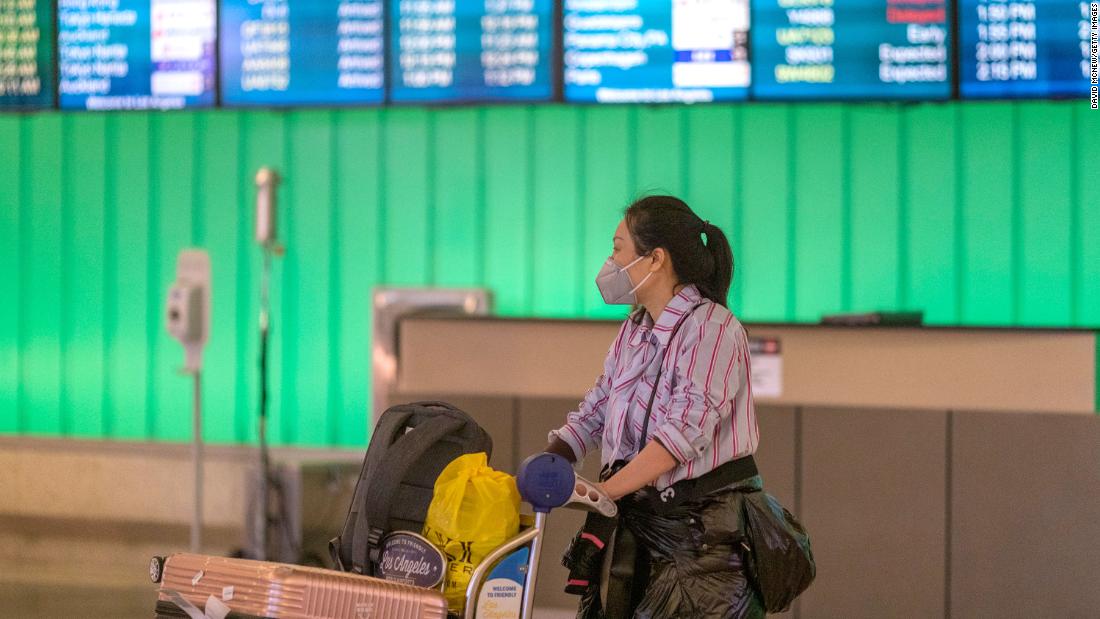US enforces coronavirus travel restrictions. China says it's an overreaction - 4 minutes read
 Travel restrictions in US: Chinese official says it's an overreaction
Travel restrictions in US: Chinese official says it's an overreactionThe US has begun implementing new rules around travel from China as the coronavirus death toll creeps higher -- rules that include re-routing Americans flying into the country to specific airports for screening.
So far, more than 360 people have died in China and more than 17,000 have been infected across more than 25 countries.
For Americans who traveled there in the past 14 days, the US Department of Homeland Security said there are a total of 11 designated airports -- including John F. Kennedy International Airport, Los Angeles International Airport and Hartsfield-Jackson Atlanta International Airport -- where travelers can enter the US.
If passengers are screened and show no symptoms they will be re-booked to their final destination and asked to "self-quarantine" inside their home, DHS says.
"Even American media and experts doubted the government's decision, saying that the US government's restrictions on China are precisely what the WHO rejects, that the US is turning from overconfidence to fear and overreaction, and that banning the entry of foreigners who traveled to China in the past 14 days is suspected to be violating civil rights instead of reducing risks of virus spreading," Foreign Ministry spokeswoman Hua Chunying said.
Based on the new restrictions that went into effect Sunday evening, Americans flying into the US who have been in China's Hubei Province in the past 14 days may be subject to up to two weeks of mandatory quarantine, Health and Human Services Secretary Alex Azar said in a news conference.
US citizens who have been in other parts of mainland China in the past 14 days will undergo screening at the designated airports and up to two weeks of monitored self-quarantine, Azar said.
To help expedite that process, DHS acting Secretary Chad Wolf said, Customs and Border Patrol and air carriers will identify passengers who fall under the restrictions before their scheduled flights.
"Once back in the U.S., it's imperative that individuals honor self-quarantine directives to help protect the American public," Wolf said in a statement.
The new rules also mean foreign nationals who were recently in China will be temporarily denied entry into the US, Azar said.
Chinese nationals coming from China and connecting through another foreign airport will be denied travel, according to a person briefed on the new restrictions. Those with pre-clearance are exempt.
Front line employees will also be allowed to wear surgical masks if they choose to do so, TSA administrator David Pekoske said in an email directive sent to employees Saturday.
Airlines including Delta Air Lines, British Airways, United Airlines, American Airlines, Air Asia, Cathay Pacific, Air India, IndiGo, Lufthansa and Finnair have announced plans to slash the number of flights they are operating to China or stop flying to the country entirely. Many airlines are offering customers refunds or credits.
Delta Air Lines suspended flights Sunday between the United States and China until at least April 30, the airline said in a press release. The suspension went into effect four days earlier than initially planned.
That guidance includes minimizing their contact with other airport personnel and limiting their time in public while in China, as well as not using public transportation when getting to hotels and monitoring their temperature.
Source: CNN
Powered by NewsAPI.org
Keywords:
China • China • Coronavirus • China • United States Department of Homeland Security • John F. Kennedy International Airport • Los Angeles International Airport • Hartsfield–Jackson Atlanta International Airport • Quarantine • United States Department of Homeland Security • China • Fear • Exaggeration • China • Civil and political rights • Virus • Hua Chunying • China • Hubei • Quarantine • United States Department of Health and Human Services • Alex Azar • Mainland China • Quarantine • United States Department of Homeland Security • Carolina Liar • U.S. Customs and Border Protection • Quarantine • China • China • Hong Kong International Airport • Customs • Employment • Transportation Security Administration • David Pekoske • Email • Delta Air Lines • British Airways • United Airlines • American Airlines • AirAsia • Cathay Pacific • Air India • IndiGo • Lufthansa • Finnair • China • Airline • Delta Air Lines • United States • China • Airline • Airport • China • Public transport •